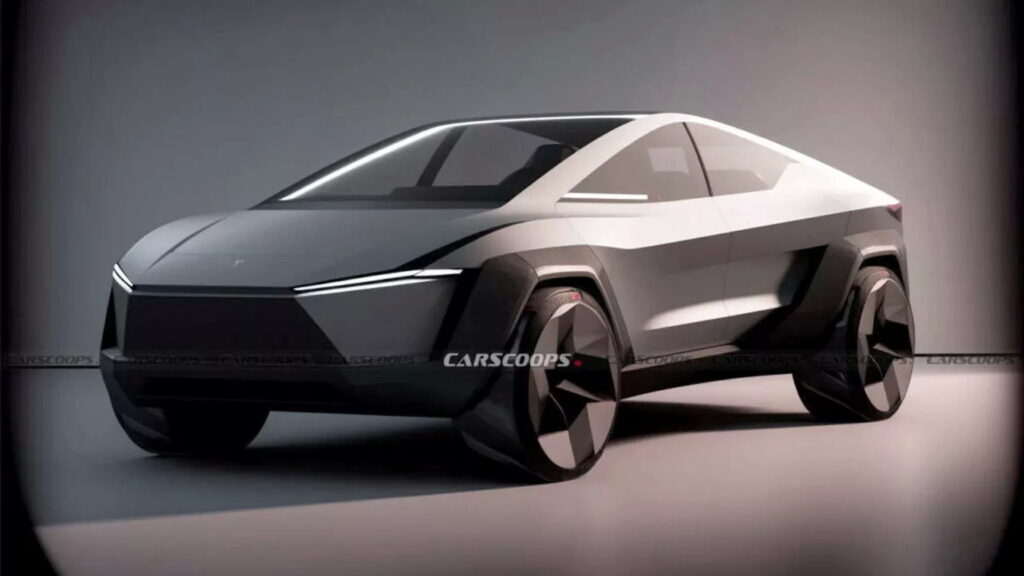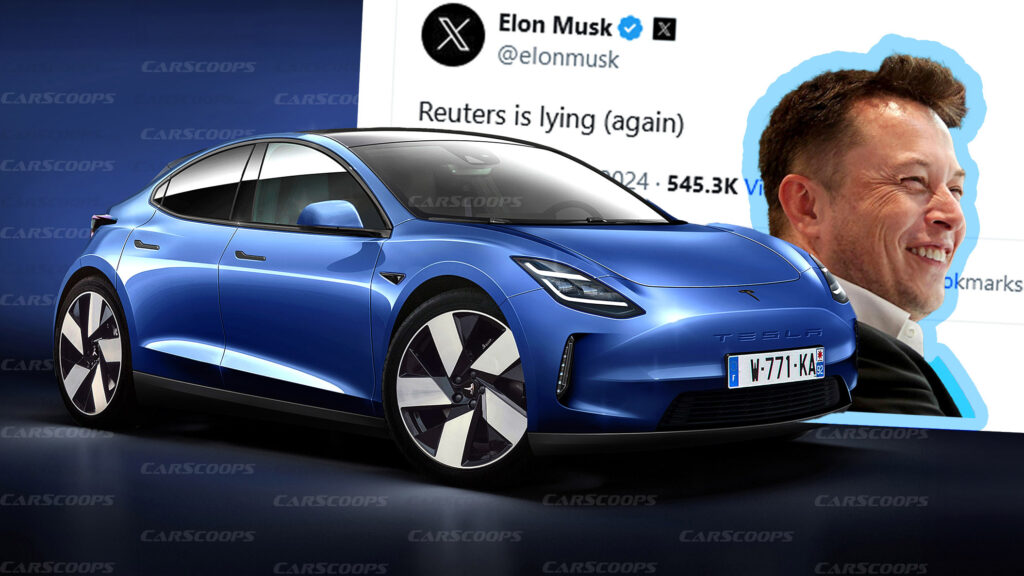- According to unnamed sources and internal documents seen by Reuters, Tesla’s $25,000 EV is dead.
- However, Musk denied the report, saying Reuters is lying, but has yet to point to specific errors.
- The Tesla CEO has decreed that the company should “go all in” on the robotaxi that was expected to be based on the same platform.
Tesla has reportedly decided to end development of its affordable electric car for the mass market. Reuters, citing unnamed sources, claims that the electric automaker will now prioritize preparing an autonomous robotaxi, which was initially planned to be based on the same platform. However, CEO Elon Musk has directly refuted the report, stating on Twitter that ‘Reuters is lying (again)’.
Informally referred to as the Model 2, the affordable EV was supposed to have a starting price of around $25,000. It was set to utilize a new vehicle platform and manufacturing method aimed at significantly reducing production costs and the required manufacturing footprint. As a crucial component of Tesla’s goal to achieve annual sales of 20 million vehicles by 2030, the Model 2 played a pivotal role in the company’s ambitious plans.
Read: Tesla Teases Two New EVs For The Van And Compact Segments
However, unnamed sources, supported by internal memos reviewed by Reuters, now suggest that the Model 2 program has been terminated. According to one of the sources, ‘Elon’s directive is to go all in on robotaxi.
Tesla did not immediately respond to a request for comment. However, on the CEO’s social media platform, X, he wrote, “Reuters is lying (again).” He did not point to any specific falsehoods, though.
Musk did post the side eyes emoji in response to a post by noted Tesla fan and X personality Sawyer Merritt, positing that Tesla was “so impressed with how good FSD 12 has performed and were maybe thinking they should be shifting even more resources to the Robotaxi/FSD effort.”
👀
— Elon Musk (@elonmusk) April 5, 2024
He suggested that this might imply the Model 2 has been put on the back burner rather than completely canceled and interpreted Musk’s response as approval. However, an internal email seen by Reuters tells a different story. In the email, a manager instructed employees working on the project that “suppliers should halt all further activities related” to the vehicle. The manager also urged employees to document their progress to ensure that their efforts do not “go to waste.”
After the report was published, Tesla shares dropped approximately 3 percent. Investors highlighted the potential high sales volume an affordable EV could have brought as one of the factors influencing the automaker’s lofty stock valuation.
Tesla has been beaten to the punch on an affordable EV in China, the world’s largest EV market. Meanwhile, companies like Volkswagen say they are working on an affordable EV of their own, which will start at €25,000 (around US$27,100 at current exchange rates), and may even work on one with a starting price of €20,000 (around US$21,700).
Although Musk has publicly touted the Model 2 for some time, there are indications that he may not have been fully convinced of its potential behind the scenes. In Walter Isaacson’s biography of the CEO, it was noted that senior company executives had to make a concerted effort to persuade Musk of the vehicle’s value. In fact, Musk attempted to put the project on hold in 2022, arguing that the development of the robotaxi would render it irrelevant.

Musk has placed a significant emphasis on autonomous technology recently. After launching FSD 12, he mandated that the system be installed on every new vehicle. Additionally, Musk offered every Tesla owner in America a free sample of the system to encourage adoption, particularly as its growth had stagnated.
While Musk has lauded FSD as “mind-blowing” and deemed advanced driver assistance systems as the most valuable part of the company, the technology has been embroiled in controversy. Faced with recalls and lawsuits, it now lags behind other systems on the road. Additionally, like other autonomous technologies, it faces skepticism from American consumers.
Note: This article contains speculative renders that were not produced by, nor are they approved by, Tesla.
Reuters is lying (again)
— Elon Musk (@elonmusk) April 5, 2024




